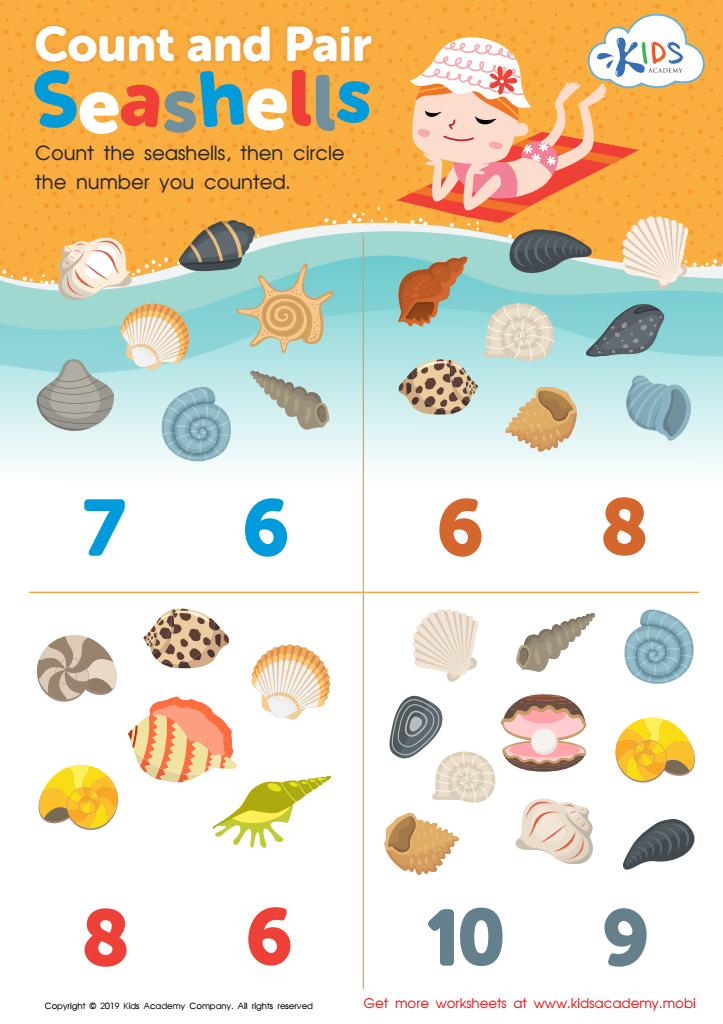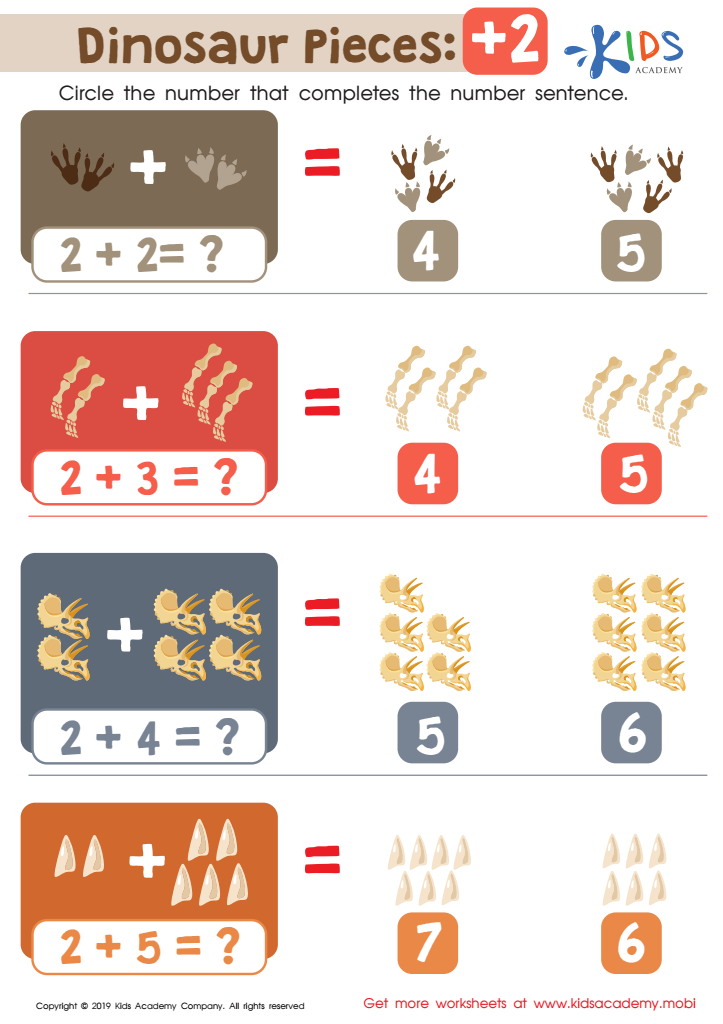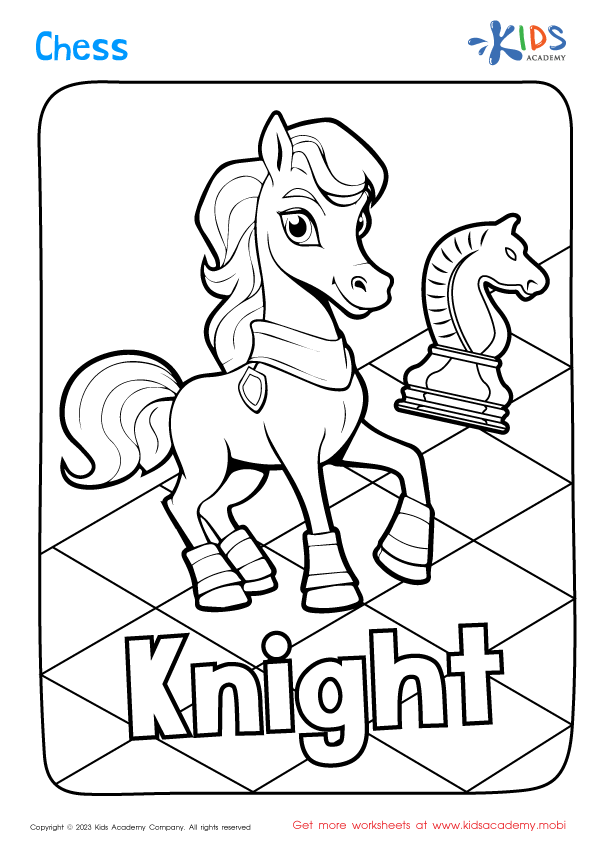Fine motor development Easy Worksheets for Ages 6-7
3 filtered results
-
From - To
Discover an array of fine motor development easy worksheets for ages 6-7 on our site. These engaging, kid-friendly activities are designed to enhance your child’s dexterity and hand-eye coordination, crucial for writing and daily tasks. Each worksheet involves fun tasks like tracing, cutting, and coloring, tailored to captivate kids while boosting their motor skills. Our expertly crafted sheets provide a mix of challenges to keep learning enjoyable. Foster your child's fine motor abilities with our high-quality, printable resources, perfect for home or classroom use. Visit now to transform skill-building into an exciting adventure!


Count and Pair Seashells Worksheet


Dinosaur Pieces: +2 Worksheet
Fine motor development is crucial for children aged 6-7 as it directly impacts their ability to perform everyday tasks and succeed academically. These skills involve the smaller muscles in the hands and fingers, which are essential for activities like writing, buttoning clothes, and using utensils. At this age, children’s brains and muscles are still developing, and practicing fine motor skills helps to strengthen these connections.
Improving fine motor skills can boost a child’s confidence and independence. For instance, being able to tie their own shoes or zip up a jacket allows them to feel more self-sufficient. In the classroom, children with well-developed fine motor skills can more easily learn to write letters and numbers clearly, which in turn supports their reading, math, and overall learning process.
Moreover, activities that enhance fine motor skills, such as coloring, playing with building blocks, and cutting shapes with scissors, can also promote creativity and cognitive development. Encouraging fine motor activities at home and in school helps create an environment where children can practice and refine these skills in fun and engaging ways. In summary, fostering fine motor development is essential for a child’s overall well-being, academic success, and confidence.
 Assign to My Students
Assign to My Students























